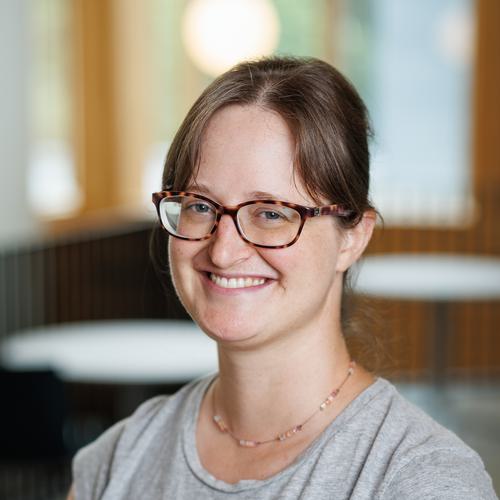
Mara Laslo
Assistant Teaching Professor in Biological Sciences
I am excited to teach both majors and non-majors in introductory biology and a variety of other courses and am committed to empowering students to pursue science.
As an educator, I strive to center the student as a scientist in a welcoming and empowering environment. I structure classes to go beyond content by explicitly focusing on preparing students for their future careers. My students engage in metacognitive reflection, directly apply course concepts to their lives, and collaborate within an experiential and inclusive environment.
My research has spanned many different systems but has always been focused on the diversity of life. After receiving my undergraduate degree from University of Maryland, Baltimore County with a major in Biological Sciences with a minor in German, I pursued a Masters degree at American University with Dr. David Angelini and studied somatic sex determination genes in milkweed bugs. At American University I learned about the field of evolutionary developmental biology and I became fascinated by the idea that small changes in development can translate to evolutionary patterns of extraordinary diversity.
I continued in this field for my PhD in Organismic and Evolutionary Biology at Harvard University. My PhD thesis, completed in Dr. James Hanken’s lab, was on the evolution and hormonal basis of direct development in frogs (this is a fascinating species where they lack the tadpole stage and develop directly into adults!). Teaching herpetology during my PhD reminded me that I love getting people excited about science. I pursued further training education at the Derek Bok Center for Teaching and Learning and Harvard Medical School.
In my spare time, I like to ride my horses Pistachio and BlackJack, try new recipes, read sci-fi and fantasy books, and take walks to nearby bakeries.
Education
- B.S., University of Maryland, Baltimore County
- M.S., American University
- Ph.D., Harvard University